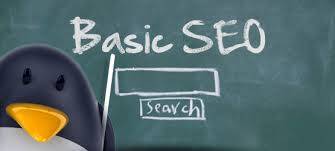
20 Feb Top 10 SEO Basics for Beginners
SEO Basics for Beginners: 10 Essential Tips to Optimize Your Website
Understanding SEO (Search Engine Optimization) is crucial for anyone looking to enhance their digital presence. Mastering these strategies will enable you to create stellar content and optimize your website effectively for better search engine rankings.
Strategic Keyword Usage
Incorporate relevant keywords throughout your site—from titles and content to URLs. Keywords are pivotal in improving your site’s visibility, but remember, overuse can lead to being flagged as spam. Striking the right balance ensures your content reads naturally while enhancing your search engine rankings.
Tip: Use tools like Ahrefs, SEMrush, or Google’s Keyword Planner to identify the best keywords for your content.
Smart Linking
Boost your site’s traffic by linking internally to relevant content within your website. This practice enhances the user experience, keeps visitors engaged, and helps distribute page authority. Avoid excessive linking, as it can overwhelm readers and reduce the effectiveness of your content.
Pro Tip: Use descriptive anchor text for your links to provide context to both users and search engines.
Monitor Your Search Standing
Use tools like Google Search Console, Moz, or Alexa to track your search rankings. Regular monitoring helps you understand which SEO strategies are working and which need adjustment.
Why It Matters: Consistent tracking allows you to stay ahead of trends and optimize your site based on real data.
Optimize Your URLs
Ensure that your URLs are concise, descriptive, and include primary keywords. Clean and structured URLs make it easier for search engines to understand your content, ultimately improving your ranking.
Example: Instead of <yourwebsite.com/page1>, use <yourwebsite.com/seo-tips>.
Create a Site Map
A sitemap not only helps users navigate your website but also assists search engines in indexing your pages. Submit your sitemap through Google Search Console to boost your SEO and make your site more discoverable.
Optimize Image Descriptions
Search engines can’t read images, so providing alt text with keywords helps them understand your images. This improves your site’s accessibility and SEO.
Best Practice: Keep alt text short but descriptive, like “SEO optimization chart.”
Avoid Overusing Flash
Flash-based elements can be visually appealing but aren’t beneficial for SEO. Search engines struggle to read Flash, making it harder for your site to rank well. Use HTML5 or CSS3 to create interactive and visually appealing elements without sacrificing search visibility.
Leverage Social Media
Social media platforms are powerful tools for driving traffic to your site. Share your content across different channels and ensure your posts are optimized with meta descriptions, titles, and hashtags for better reach.
Tip: Engage with your audience through social comments and shares to increase interaction and backlinks.
Link to Reputable Sites
Backlinks from reputable sites signal search engines that your content is trustworthy. Build relationships with industry-related websites for better credibility and SEO.
How to Get Started: Reach out to authoritative sites for guest posting opportunities or collaborate on content.
Regularly Update Content
Search engines prioritize fresh and relevant content. Regularly updating your site ensures you stay current and helps maintain and improve your ranking.
Action Step: Schedule periodic content audits to refresh old posts with new data or updated information.
Transform Your SEO with Expert Help
Struggling to get your SEO right? Don’t go it alone! Webociti is here to help you navigate the complexities of SEO with expert solutions tailored to your needs. Contact Webociti today at 678-892-7157 for a free consultation. Let’s optimize your website together and drive your business success!
#SEO #SEOTips #DigitalMarketing #ContentCreation #WebOptimization #OnlineMarketing #SEOForBeginners #SearchEngineOptimization #GoogleRanking #WebsiteTraffic


